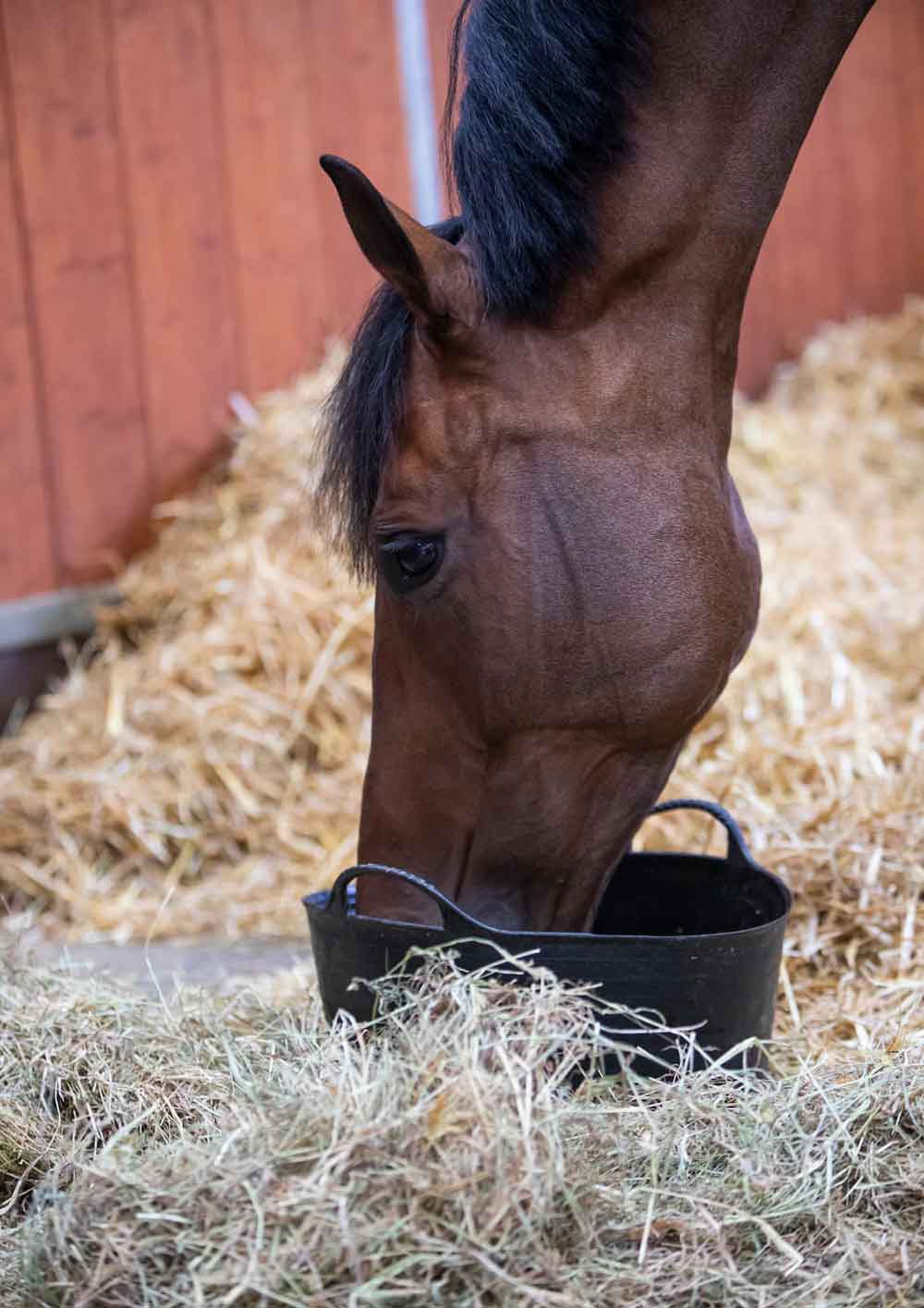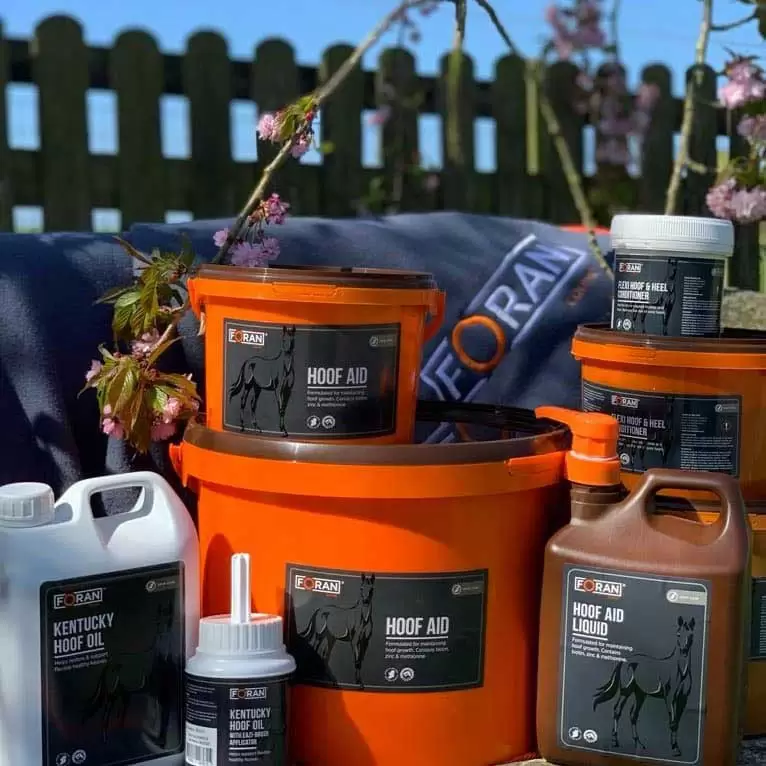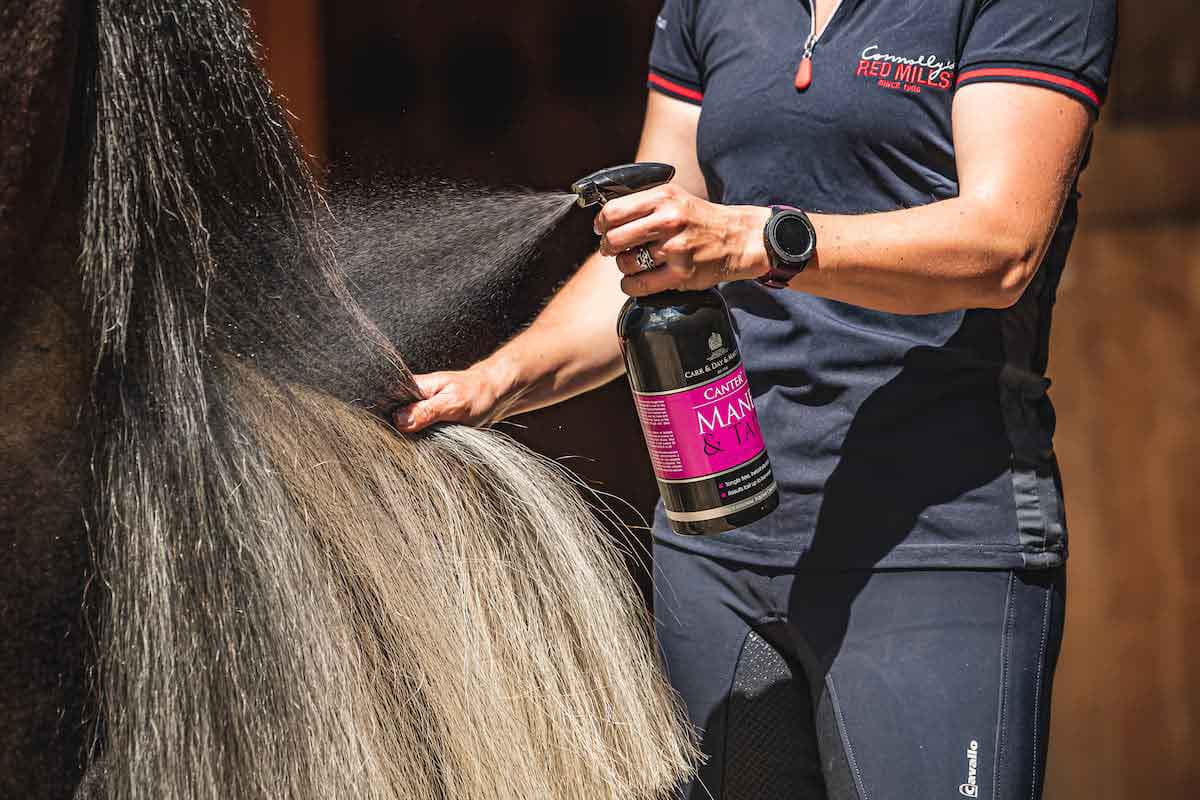The Importance of Forage in the Older Horse's Diet
Fibre is a key component in any diet. Good quality forage is even more important for older horses to promote chewing and help the teeth wear properly. Fibre is also necessary for good gut function and thermoregulation, keeping the horse warm from the inside.
As a guideline you should be feeding at least 1.5% of BW per day as forage on a dry matter (DM) basis, for example 7.5kg a day for a 500kg horse. This helps regulate stomach acidity, promote digestive health, maintain a healthy hindgut and aid mental stimulation. Forage also provides a good source of ‘slow release’ energy, as beneficial microbes in the hindgut gradually ferment the fibre. Hindgut microbes are also involved in the production of B-vitamins, which play an important role in energy metabolism.

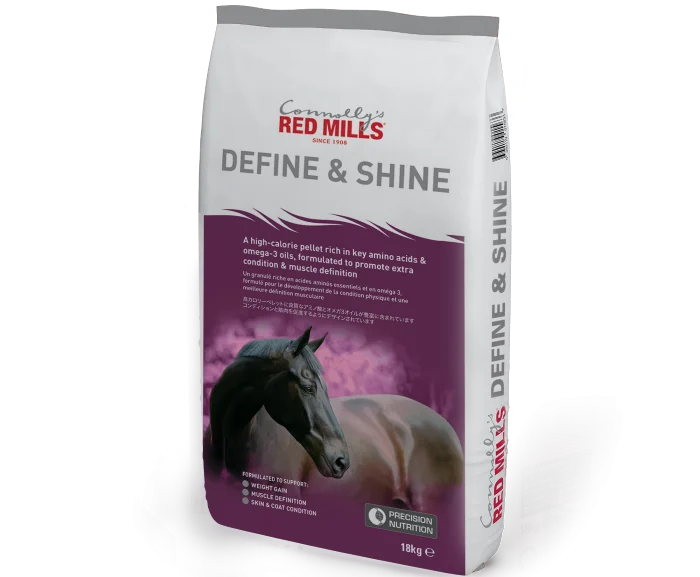
The Importance of Protein in the Older Horse's Diet
Protein serves a multitude of roles in the horses body. It is used to build and repair body tissues and is a major component of the body forming muscles, skin, tendons, blood vessels, organs, bone, hair and hoof. It is not only important in building cells and repairing tissues, but also aids in regulating many of the horses bodies’ systems and functions.
Muscle loss in horses is a very common problem as the horse ages. So, as the horse gets older it may be necessary to increase the protein content of the feed to counteract muscle loss associated with aging. In addition, many studies suggest that older horses may have decreased ability to digest protein thus increasing the need for good quality, digestible protein in the feed. If you find that, despite the correct exercise regime, your older horses is not maintaining or building topline then it may be appropriate to consider a slightly higher protein horse feed. You can also add quality protein to the feed by adding a top- up horse feed such as Define & Shine to the diet. This is a high-calorie pellet rich in key amino acids & omega-3 oils, formulated to promote extra condition & muscle definition. Alternatively, Foran Equine’s Muscle Prep is an excellent equine muscle builder supplement containing hydrolysed plant protein; a source of readily available amino acids for rapid muscle development. For more detailed information on protein click here.
Understanding Calorie Content in Horse Feed For Older Horses
It is good practice to assess your horses body condition score (BCS) regularly to help you to keep an eye on their condition, find out more on how to body condition score your horse here.
Some horses are naturally ‘good doers’ and will require a calorie-controlled diet. For clinically healthy older horses prone to weight gain see article Feeding the Good Doer.
As the horse gets older, they can lose condition, especially in the winter it can be hard to maintain horses in peak condition. Horses gain weight by consuming calories. Therefore, when selecting a horse feed for weight gain one of the most important factors to consider is its energy (calorie) content. For clinically healthy older horses prone to weight loss see article Feeding for Condition.
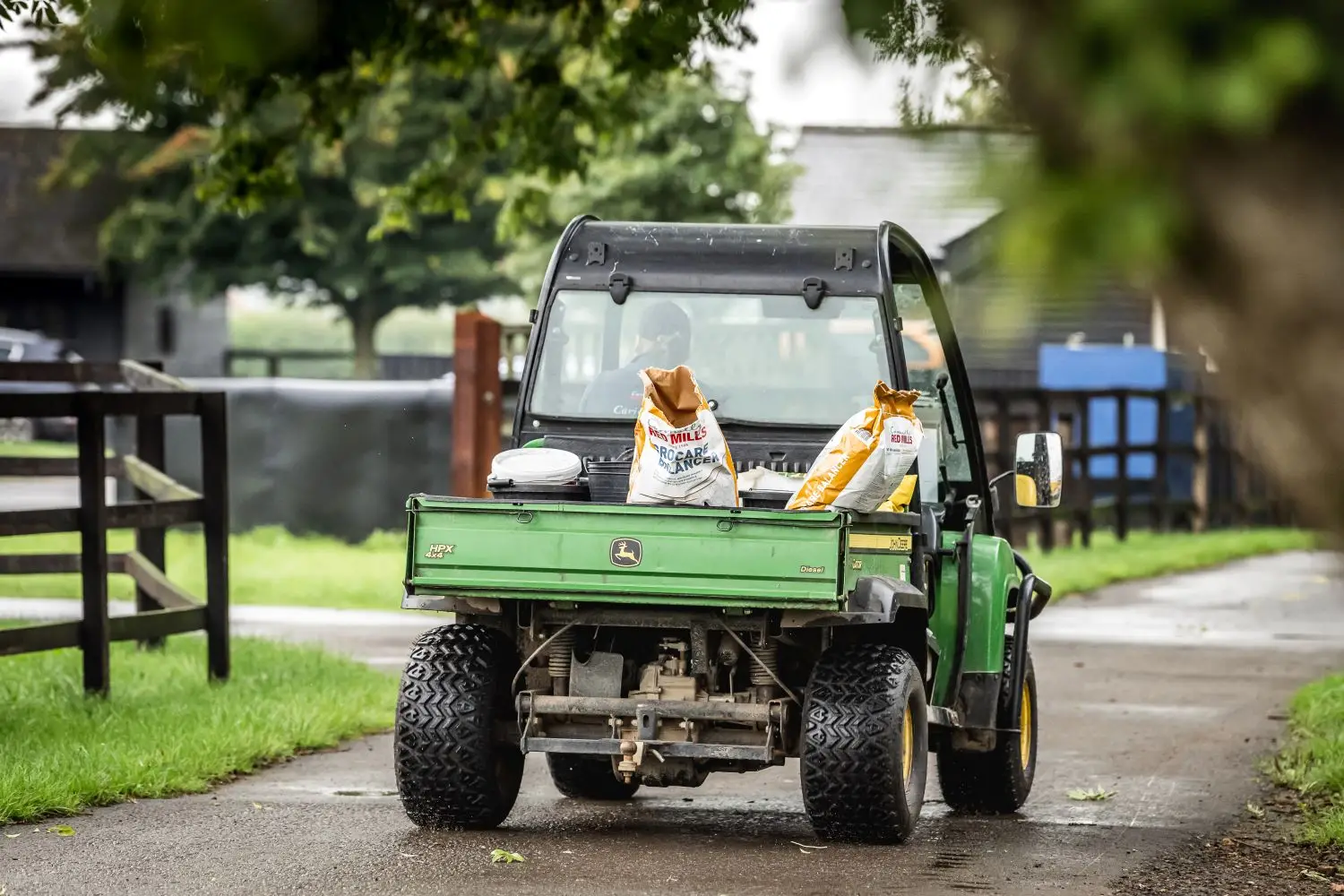
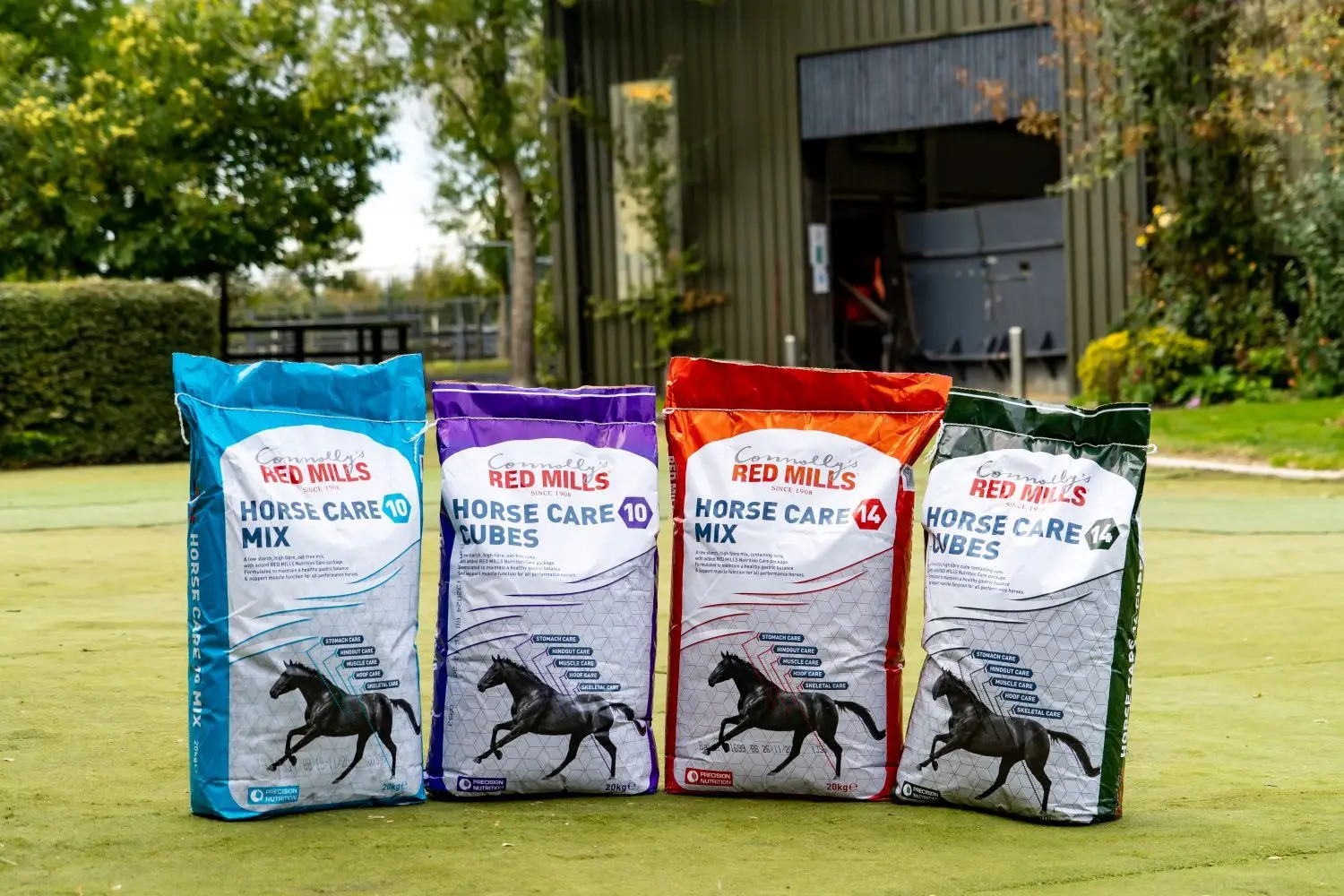
Role of Vitamins and Minerals in the Older Horse's Diet
Meeting the horse’s micronutrient requirement is also critical for the senior horse. Vitamins and minerals are essential for many bodily functions including energy metabolism, bone strength, and recovery. For example, copper for horses is required throughout the horse’s life as it is involved in tissue elasticity and it can also help your it’s coat condition. The antioxidants Vitamin E and selenium are particularly important for horses in higher levels of work as they help to neutralise the increased free radical production associated with exercise. All Connolly’s RED MILLS feeds contain the RED MILLS Pro Balance vitamin and mineral package to ensure your horse receives all the essential micronutrients.
Specific Health Concerns Associated with Aging in Horse's are Best Addressed by the Vet
The most suitable dietary management will depend on the individual’s clinical and/ or metabolic status and ability to maintain condition. If you have concerns regarding poor performance, muscle loss or general well-being the first thing to do is to contact your veterinary surgeon for a general health check to rule out any health problems associated with aging.


Joint Care in Senior Horses & Joint Supplements for Older Horses
Joint health is essential for equine athletes. Strong, stable, joints are needed to maximise performance. A busy performance schedule can place high demands on the equine joint.
Many older horses will show signs of poor recovery due to problems with lameness. While lameness is often caused by orthopaedic (bone) problems, there may also be wear and tear and stiffness in the muscles required for working.
Maintaining joint health through supplementation improves performance and will prolong the athletic life of the horse. We recommend Foran Equine’s Ost-O-Flex , our equine joint supplement. This is a palatable, highly effective syrup, containing Glucosamine, a key component of cartilage, MSM to promote joint and ligament health as well as a bioavailable source of Calcium Chondroitin Sulphate, plus Hyaluronic Acid to help maintain join mobility and health.
Promoting Digestive Efficiency in Older Horses
As a horse ages, the efficiency of their digestive system can decrease significantly. This can affect the ability and balance of the hind gut microbiota populations. Equally we know that the stresses associated with competition (e.g. restricted turnout, isolation, travelling, unfamiliar surroundings) can have a negative effect of gut health and overall well-being. To help support gut health we recommend our Horse Care range. These feeds have been expertly formulated by our nutritional team and contain a Nutrition Care package which includes yeast, two prebiotics and a natural long-lasting gastric acid buffer to help support digestive efficiency and a healthy gut microbiome. To further support the gastrointestinal system, a gut supplement for horses such as Foran Equine’s Nutri-Gard , can be added to the diet. This is a scientifically advanced supplement containing 12 active ingredients to support stomach health & hindgut health.


Older Horses; Competing and Aiding Recovery with Equine Electrolytes
Another feature of aging is prolonged recovery times post- competition. This becomes particularly relevant when horses travel away for a show over several days or are required to compete in several competitions over the course of the day. This is often described as the horse just losing sparkle towards the end of the competition or being quiet in the stable for a day or so after competing.
Dehydration can contribute to problems such as tying up, delayed recovery post exercise and/or increased onset to fatigue. Equine electrolytes may be required according to workload and ambient conditions. Older horses, particularly those suffering with Cushing’s disease may sweat profusely during warm summer days and so equine electrolytes for these older horses is particularly important.
Foran Equine Equi-Lyte G has Added Vitamin C and E for Horses
Electrolytes help to maintain fluid balance, promote faster rehydration, maintain appetite and improve muscle recovery. Foran Equine Equi-Lyte G is an excellent electrolyte for horses with added Vitamin C and E, which helps to support recovery. On competition days, Foran Equine Re-Fuel Gel, is a great equine electrolyte which is available in a handy syringe, which can be used to provide a concentrated source of electrolytes, plus vitamin C, E and B-vitamins to aid recovery and promote appetite. It is important to ensure that following electrolyte supplementation the horse has access to water to ensure optimal rehydration.


The Importance of Dental Care in Older Horses
Routine dental attention is essential in all horses and is particularly important in older horses. Horses teeth don’t stop growing like humans, this combined with uneven wear when eating means that some horses develop very long teeth or points on the edges of some teeth which may cause significant pain and reduce the amount of feed that the horse is eating. This may also lead to reduced chewing which in turn can increase the incidence of colic and choke. Problems such as dropping food or “quidding” are red light warning indicators of dental problems, but other issues may be more subtle and so older horses should be checked by a vet or qualified equine dentist at least once a year. If dental condition deteriorates, you should speak to our team of nutritionists who will be able to advise you on any dietary changes your horse may need.
Care & Management of Cushing's Disease in Older Horses is Possible
As horses age the risk of Equine Cushing’s disease, more correctly known as pituitary pars intermedia dysfunction (PPID), increases. The average age of horses diagnosed with PPID is 20 years, by which point many will already have already been retired from competition life. However, it is important to be aware of this condition as it has been diagnosed in horses are young as 7 years of age.
PPID involves the pituitary gland, which is a gland located at the base of the brain that produces hormones in response brain signals. Clinical signs include increased coat length and failure to shed coat in summer, weight loss, increased drinking and urination and increased risk of laminitis. Most horses suffering with Cushing’s can be easily managed with appropriate medication and diet and often continue to compete successfully. For more information on feeding horses with suspected or diagnosed PPID click here.


Appropriate Diet & Medication for Older Competition Horses with PPID Are Vital
Most horses suffering with Cushing’s can be easily managed with appropriate medication and diet and often continue to compete successfully. Nutritional management of horses with PPID is very similar to that of a laminitic horse and should focus on maintaining a healthy BCS and providing a diet that is low in non-structural carbohydrate (NSC). However, horses with PPID may also require specific nutritional support and so we recommend you speak to our team of nutritionists who will be able to provide advice tailored to your horse’s individual needs.
Older competition horses may require a little more attention, but it’s well worth the effort for those owners and riders who cherish a long-lasting partnership or a schoolmaster.


